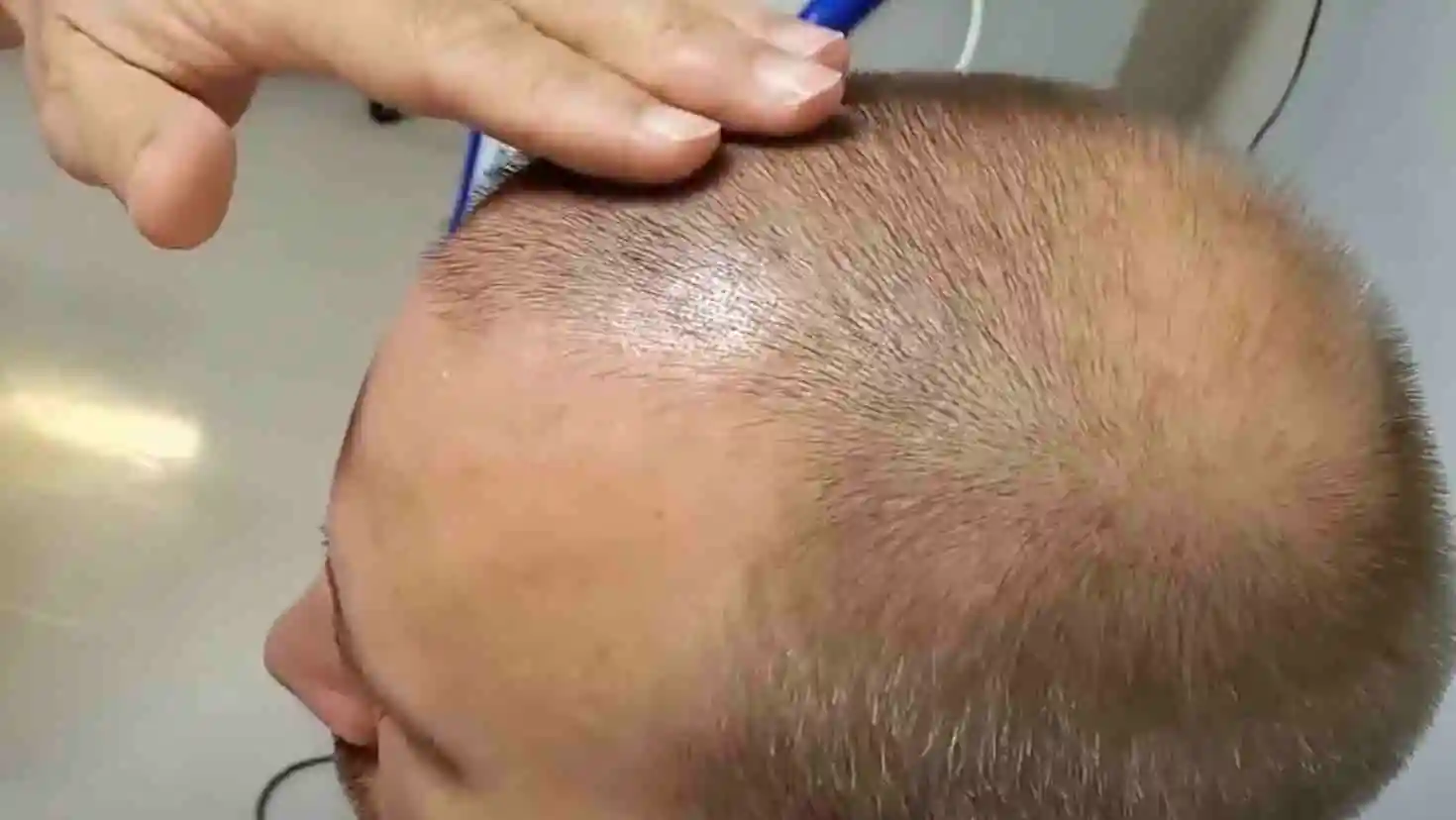Hair loss is a common concern for both men and women, but its impact can be particularly distressing for women, for whom hair is often considered to be a symbol of attractiveness. While male pattern baldness typically manifests as a receding hairline and crown miniaturization, women experience more diffused thinning across the scalp. Hair shedding is a natural part of the hair growth cycle that hair follicles undergo in their growth and resting phases and, according to the American Academy of Dermatologists, is a process that involves losing an average of 100-150 strands of hair daily.
Excessive hair loss in women, however, can be a cause for concern and is influenced by a variety of factors, ranging from genetic predisposition to hormonal fluctuations to chronic stress and illnesses. For women, hormonal changes during perimenopause, menopause, and post-menopause can add to hair-shedding issues, though hormone replacement therapies may be recommended to address this type of hair loss. Aside from major events like childbirth and Covid-19, even the use of certain hair products or especially harsh hairstyles can impact the scalp and contribute to hair thinning. Fortunately, in recent years, advancements in stem cell treatments have offered a ray of hope for managing such hair-thinning problems effectively.
Before delving into potential treatments and solutions, it is crucial to understand the underlying causes of this condition. Women may experience various types of hair loss, including female pattern hair loss, postpartum hair loss, chemotherapy-induced hair loss, and trichotillomania (hair-pulling disorder). Alopecia Areata is one of the more common conditions where the body engages in a mistaken autoimmune response to direct inflammation in the upper dermis and attack hair follicles. Chronic inflammation has thus been identified as a key factor in hair thinning, with research indicating that it can lead to the shrinking of hair follicles and result in reduced volume and a lengthier, extended hair growth cycle. Addressing the root of the inflammation is, therefore, necessary to develop any targeted treatments.
For many, stress can be another significant cause of hair loss and can manifest itself in the form of Telogen Effluvium, which occurs when the body goes through physically or emotionally stressful events. The condition is characterized by rapid hair shedding over a short period as a stressful event triggers an increase in the rate of hair follicles entering the telogen phase, also known as the resting state where the hair remains attached to the follicle but does not grow. It directly disrupts and damages the hair follicles and will often result in clumps of hair falling out after washing or brushing it, leading to excessive thinning as there is no new hair growth to replace the lost and old hair. The degree of hair loss is dependent on the severity and duration of stress exposure undergone.
One promising solution for managing women’s hair loss is the Advanced Hair System from CALECIM® Professional, a brand that uses unique cell signaling technology to extract a specific biocellular formula designed to address various skin and hair care conditions. The Advanced Hair System is a stem cell-derived serum packed with proteins, growth factors, and exosomes that stimulate, nourish, and condition any weakened hair follicles. The serum itself was created to suppress proinflammatory cytokines that are released by the body’s immune system to attack its own cells and hair follicles.
In the wake of the Covid-19 pandemic, some women have experienced Telogen Effluvium-type hair loss. CALECIM®’s Advanced Hair System has shown promise in treating this condition, as evidenced by clinical validations led by Dr. Shu Jin Lee of the National University Health System in Singapore. The study demonstrated significant improvement in the patient’s hair density after undergoing five treatments. Being so rich in growth factors and exosomes, the stem-cell-derived solution can trigger intercellular communication within the patient’s cells to promote recovery, encourage follicle regeneration, and ease inflammatory responses within the cells.
Additional in-vitro testing has displayed how the versatility of the serum extends beyond Telogen Effluvium as well, with users reporting positive results like reduced hair loss, improved hair texture, and faster hair growth when addressing concerns such as postpartum hair loss, traction alopecia, and androgenetic alopecia. Results are reported to be safe and consistent, with visible regrowth after the treatments and no mentioned side effects. The stem cell serum can also be used at home with a derma stamp or administered in clinics using a derma pen.
Aside from the Advanced Hair System, other stem cell treatments and technologies are available to help address women’s hair loss, one of which is Autologous Micrografting Technology (AMT). It is a procedure offered by Dr. Marco Nicoloso that involves extracting mature stem cells and growth factors from biopsies of the strongest follicles and injecting them back into the scalp. This can also be supported by CALECIM®’s stem-cell microneedling post-procedure to help maximize the beneficial outcome.
In conclusion, the journey to managing women’s hair loss involves understanding the various causes and exploring innovative solutions that help to resolve the root of the issue. Advances in stem cell technology, as exemplified by CALECIM® Professional’s Advanced Hair System, can reverse follicle damage and enhance the repair process by facilitating the much-needed cellular communication within the dermis. Women suffering from persistent and severe hair loss can embrace advanced treatments that help them regain more vibrant, healthy hair and receive a new lease on life for their hair health.

